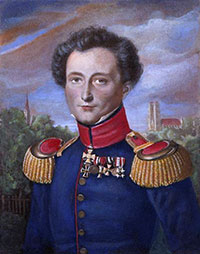
 By Mark Albertson: “In some ways the fragmented nature of the rebel movement worked to its advantage for much of the war. The USSR could find no central base of operations to bomb, no one strategy planning meeting to infiltrate, no single popular leader to negotiate with or eliminate. The Mujahidin’s steady harassment came from all directions in this war without borders. General Boris Gromov, the last commander of the Soviet 40th Army in Afghanistan, boasted on his last day in the country that, ‘no Soviet garrison or major outpost was ever overrun.’
By Mark Albertson: “In some ways the fragmented nature of the rebel movement worked to its advantage for much of the war. The USSR could find no central base of operations to bomb, no one strategy planning meeting to infiltrate, no single popular leader to negotiate with or eliminate. The Mujahidin’s steady harassment came from all directions in this war without borders. General Boris Gromov, the last commander of the Soviet 40th Army in Afghanistan, boasted on his last day in the country that, ‘no Soviet garrison or major outpost was ever overrun.’
“In this guerrilla war, however, that proved irrelevant.”
Source: Pages 17 and 18, “The Geneva Accords and the Soviet Withdrawal,” Volume II, Afghanistan: Lessons From the Last War,” by Steve Galster, The National Security Archive, October 9, 2001.
Yet in Vietnam, where the American effort was opposed by an enemy, which for the most part was not impeded by tribal affiliations, clannish associations, religious differences and ethnic passions of a type which characterized the Russian sojourn into Afghanistan, incurred a like result . . . the political defeat of a superpower. For as Colonel Harry Summers, Jr., wrote, “You know you never defeated us on the battlefield,” said the American colonel. The North Vietnamese colonel pondered this remark a moment. “That may be so,” he replied, “but it is also irrelevant.”
Source: Page 1, Introduction, “Tactical Victory, Strategic Defeat,” On Strategy, by Harry G. Summers, Jr., Colonel of the Infantry. Last word here belongs to Clausewitz: “War therefore is an act of violence intended to compel our opponents to fulfill our will.”
Source: Page 101, chapter 1, “What is War?” On War, by Carl von Clausewitz. Quite obvious that in Afghanistan and Vietnam, the two superpowers failed to fulfill the dictum of Clausewitz.
























